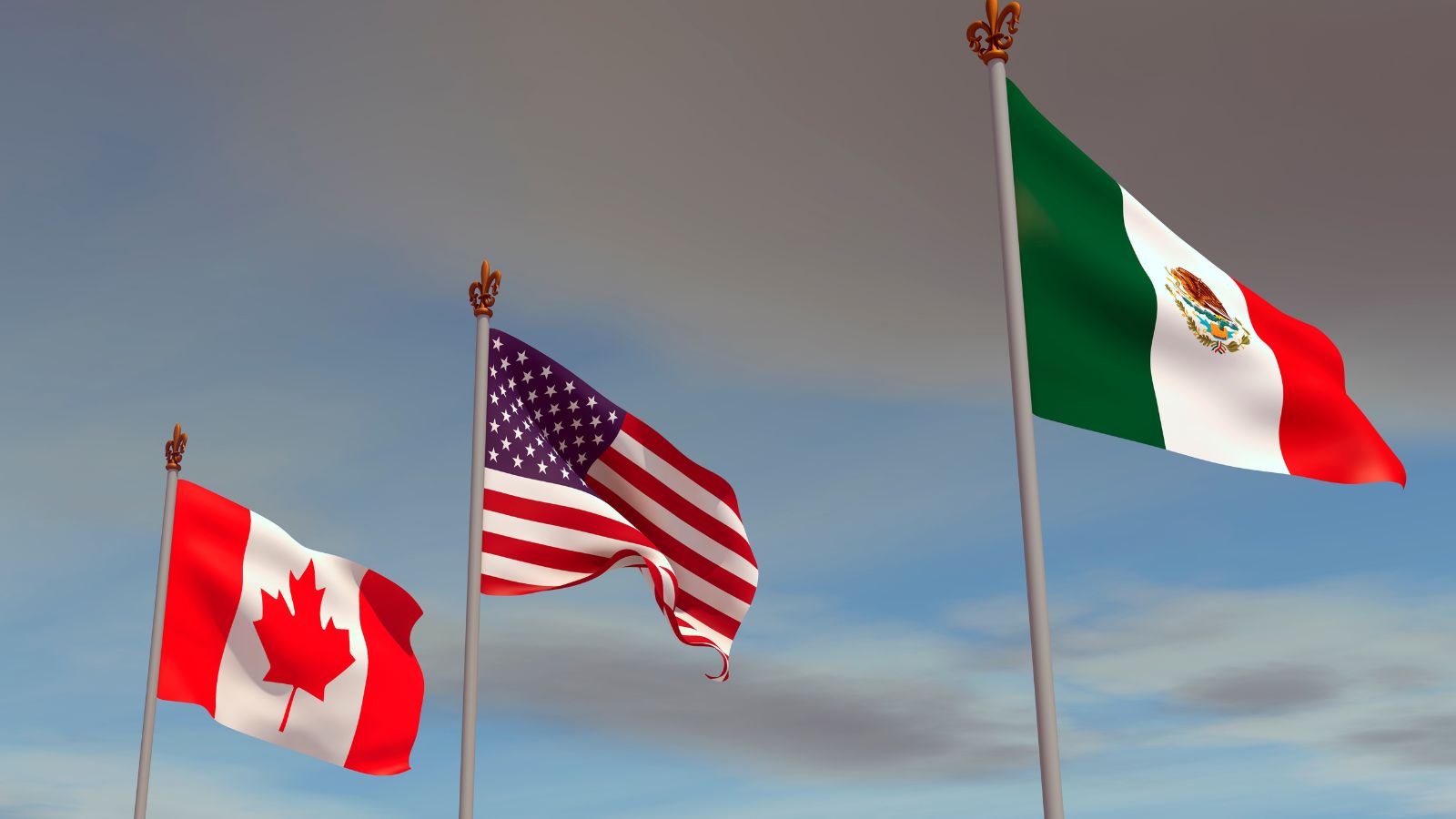Canada and the United States have long enjoyed one of the world’s most integrated economic relationships, yet it’s far from a level playing field. While cooperation often benefits both nations, certain American policies quietly erode Canadian economic growth, autonomy, and long-term stability. These decisions, whether intentional or not, often prioritize U.S. interests at the expense of Canadian prosperity. Here are 15 U.S. policies quietly undermining Canadian prosperity.
Buy American Provisions

The “Buy American” policies embedded in U.S. federal infrastructure and procurement laws create systemic barriers for Canadian companies. These protectionist rules favor U.S.-based suppliers and manufacturers, excluding qualified Canadian firms from billion-dollar contracts, even when Canada has opened its own markets. The result is a lopsided trade dynamic where Canadian businesses lose out on opportunities, despite being long-standing partners. This hurts Canadian industries, especially manufacturing and construction, and restricts economic growth on the northern side of the border.
Softwood Lumber Tariffs

For decades, the U.S. has imposed recurring tariffs on Canadian softwood lumber, citing unfair subsidies despite rulings to the contrary by international trade bodies. These duties inflate costs for American builders while destabilizing Canada’s forestry sector, which provides vital jobs in rural regions. The uncertainty created by these tariffs discourages investment and long-term planning in the Canadian industry. It’s a persistent source of tension that undermines Canada’s resource economy.
Agricultural Subsidies and Protectionism

Massive U.S. subsidies to American farmers distort the North American agricultural market, allowing U.S. products to flood Canada at artificially low prices. This undermines Canadian farmers who must compete on uneven terms, often without equivalent domestic support. In some cases, it pushes smaller farms out of business, consolidating power among large agri-businesses. While Canadian agriculture focuses on quality and sustainability, U.S. policy encourages overproduction and market manipulation.
Prescription Drug Reimportation Bans

The United States prohibits the bulk importation of cheaper Canadian prescription drugs, even as U.S. lawmakers use Canada as a reference point for lower prices. This policy protects the profits of big pharmaceutical companies but restricts competition and limits Canada’s ability to negotiate better rates with drug manufacturers. It can also cause drug shortages in Canada when U.S. demand spikes unexpectedly. The arrangement benefits American consumers and industry at Canada’s expense.
Digital Tax Avoidance by U.S. Tech Giants

Major American tech companies like Amazon, Meta, and Google dominate the Canadian digital marketplace but pay minimal taxes due to favorable U.S. international tax policies. Canada loses billions annually in potential tax revenue that could be invested in infrastructure, education, and healthcare. These companies also undercut local media and retailers, weakening Canadian competition. Without fair taxation, the playing field remains tilted in favor of U.S. multinationals.
Currency Manipulation Policies and the Strong USD

While Canada does not actively manipulate its currency, U.S. monetary policy and global dollar dominance influence the Canadian economy in complex ways. When the U.S. Federal Reserve raises interest rates aggressively, it strengthens the U.S. dollar and puts downward pressure on the Canadian dollar. This makes Canadian exports cheaper but also drives up the cost of imports and debt servicing for Canadians. Canadian fiscal sovereignty often takes a back seat to decisions made in Washington.
Oil and Gas Pipeline Obstructions

Several U.S. political and regulatory decisions have stalled or cancelled major pipeline projects that are crucial to Canadian energy exports, such as the Keystone XL pipeline. These cancellations limit Canada’s access to global energy markets and keep its oil industry dependent on a single customer, the U.S. This weakens Canadian bargaining power and keeps oil prices suppressed for Canadian producers. The U.S. gets cheap energy while Canada absorbs the economic fallout.
Trade Dispute Mechanism Weakening in USMCA

The updated United States-Mexico-Canada Agreement (USMCA) altered dispute resolution systems in ways that dilute Canada’s ability to challenge unfair American trade actions. The erosion of strong dispute panels leaves Canada vulnerable to unilateral U.S. decisions, especially on trade remedies and cross-border commerce. While the agreement preserved some mechanisms, they are slower and less effective than under NAFTA. It subtly shifts more control to Washington, reducing Canada’s leverage.
Cross-Border Data Control and Privacy

American surveillance and data regulations allow U.S. authorities to access information stored on American-owned platforms, even if that data originates in Canada. This undermines Canadian privacy standards and exposes citizens and businesses to foreign scrutiny. Canadian firms are pressured to use American infrastructure, which limits the growth of homegrown tech alternatives. These policies compromise sovereignty in the digital age and pose long-term national security questions.
Military Procurement Pressure and NATO Spending Expectations

The U.S. often pressures Canada to increase defense spending to meet NATO targets, even if those funds don’t reflect Canadian priorities or strategic interests. Much of this spending ends up going to American defense contractors, siphoning Canadian tax dollars south of the border. While Canada values its alliance with the U.S., forced procurement reduces policy flexibility and inflates military budgets. Domestic programs and infrastructure often pay the price.
Auto Industry Rules of Origin

Under USMCA, tighter rules of origin were introduced in the auto sector, demanding higher levels of North American content in vehicles. These changes disproportionately benefit U.S. manufacturing hubs while putting additional strain on Canadian producers, who must adapt to more complex and costly compliance requirements. This weakens Canada’s competitiveness and may divert future investment toward the U.S. The rules look cooperative on paper but skew outcomes in favor of American interests.
Interference in Telecommunications Regulation

U.S. pressure to open Canadian telecom markets to American giants threatens to undermine Canadian companies that operate under stricter regulatory obligations. Canadian telecoms support local content, infrastructure investment, and rural service, which are often ignored by profit-driven U.S. firms. If deregulation occurs, American companies could extract profits without reinvesting in Canadian systems. The result could be higher costs and less innovation within Canada’s own telecom landscape.
Visa and Immigration Disruptions

Changes in U.S. immigration policy, including travel bans and tightened visa requirements, often disrupt joint research projects, cross-border business, and academic exchanges. When the U.S. becomes less accessible, it affects Canadian institutions that rely on seamless cross-border talent flows. It also pressures Canada to compensate without adequate support. These shifts hurt innovation and limit opportunities for growth in sectors like tech, academia, and healthcare.
Cultural Industry Exemptions Under Siege

Canada has long fought to protect its cultural industries from American domination through quotas and subsidies, but new trade agreements and lobbying threaten those safeguards. U.S. streaming services are not always required to contribute to Canadian content, creating a cultural imbalance. As Canadians consume more U.S. media, domestic creators struggle for visibility and funding. The erosion of cultural protections risks the loss of Canadian storytelling and identity.
Export Controls and Tech Sanctions

When the U.S. imposes export restrictions on certain technologies or countries, Canada often feels the secondary effects, even when its own policies differ. Canadian companies get caught in compliance webs that stifle innovation and delay production. For instance, American sanctions can prevent Canadian firms from accessing critical components or selling to strategic markets. Canada’s economy is thus tied to U.S. geopolitical decisions beyond its control.
21 Products Canadians Should Stockpile Before Tariffs Hit

If trade tensions escalate between Canada and the U.S., everyday essentials can suddenly disappear or skyrocket in price. Products like pantry basics and tech must-haves that depend on are deeply tied to cross-border supply chains and are likely to face various kinds of disruptions
21 Products Canadians Should Stockpile Before Tariffs Hit
